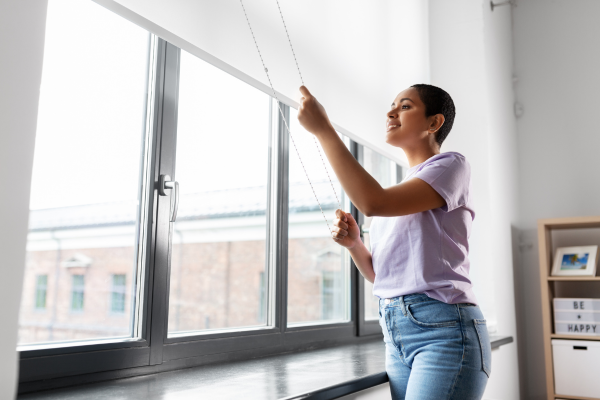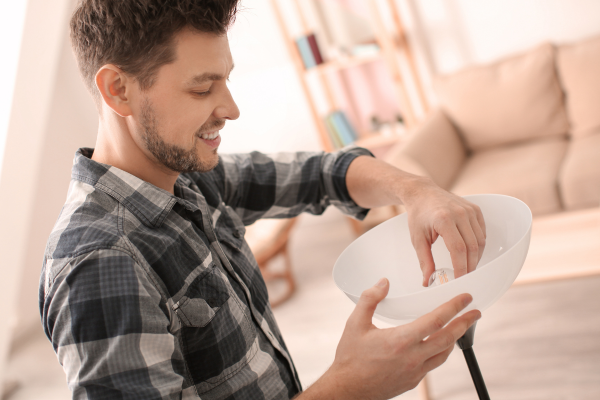Sustainable living tips for tenants

Ideally, every home would be as environmentally friendly as possible, fuelled by energy from sustainable sources, easy and affordable to heat and run.
However, as a tenant – particularly in the current market, where the huge imbalance between supply and demand means rented homes are being snapped up as soon as they become available – you may not have the luxury of being able to wait for the most environmentally-friendly option.
So, what checks should you make before signing onto a tenancy and what can you do to help ensure you live as sustainably as possible?
Before accepting a tenancy
Before even viewing a property, ask to see the Energy Performance Certificate (EPC), which shows the energy rating. Legally, a rental property cannot be advertised without a valid EPC and it must prove a minimum rating of ‘E’.
Plans to raise this minimum to ‘C’ in 2025 were scrapped by the Conservatives at the end of 2023, but with Labour’s strong commitment to achieving Net Zero, it is likely that rented homes will have to be rated ‘C’ or higher by 2030. So, ideally look for a property that already has this more efficient rating – particularly if you’re planning to rent longer term.
The other thing to check is whether the property has a smart meter, which enables you to closely monitor and track your energy usage. If there isn’t already one, and you are responsible for paying your own bills, you can make the switch once you’re living there – simply contact your energy supplier, but always speak to your landlord and/or agent before you install one.

Saving energy in your rented home
The less energy you use in your home, the better it is for the environment and the more money you will save on bills. Here are three things you can do to help reduce your energy usage in any property:
- Take short showers instead of having baths - According to the Energy Saving Trust, keeping your shower time to just 4 minutes could save a typical household £50 a year – more if you’re currently used to taking baths.
- Turn things off when you’re not using them - Switching off lights when you leave a room and not leaving electrical items on standby could save you around £50 a year.
- Prevent heat escaping - Around 10% of a typical home’s heat can escape through windows and doors. So closing curtains, fitting blinds and using draught excluders should help keep more of the heat in.
Reducing waste
Being environmentally friendly means creating less waste for landfill and recycling as much as possible. Three tips that could help you with this:
- Donate or recycle unwanted items - Instead of throwing away unwanted clothes and other things you no longer need, donate usable items to local charities and recycle what you can, via clothes banks and recycling centres, or sell them online.
- Buy products with minimal or sustainable packaging – Being mindful when you’re buying food and other household products of how much packaging there is and whether it’s recycled and/or biodegradable can be helpful.
- Avoid buying more than you need – It’s very easy to be encouraged by multi-buy offers in supermarkets, but often this extra produce goes to waste and can be a false economy. Always take a list when you shop and try only to buy what you really will consume.
Using eco-friendly products
Things like cleaning and laundry products end up in the air on and surfaces around us, as well as down the drain, so the fewer chemicals you can use in your home, the better for you and the environment.
So when you’re buying supplies, look for products that are biodegradable, cruelty-free, and free from harmful chemicals like phosphates and chlorine bleach. You could even make your own cleaning solutions, using natural ingredients. Vinegar, lemon and water makes a great all-purpose cleaner, and you can add a rosemary sprig for an extra natural scent.

Working with your landlord to create a green home
The longer you’re planning to stay in your rented home, the more receptive your landlord is likely to be to any eco-suggestions you make, but here are three things you could discuss with them:
- Installing eco-certified appliances – If the white goods in the property are obviously not new, it’s worth asking if your landlord would consider replacing them with energy-efficient models. These are designed to use significantly less energy and water than standard models and will save you money on bills.
- Upgrading the lighting – Retrofitting the property with energy-efficient LED light bulbs is fairly straightforward and the landlord may also be willing to install motion sensors and timers to make it easier to conserve electricity.
- Upgrading gas-powered equipment – Replacing things like gas-powered water heaters with electric alternatives could cut your heating costs by up to 50%.
If you are currently renting with us and would like to discuss options for making your home more energy efficient, just get in touch and we’ll be happy to have a chat!
Looking for advice?
If you're looking to let or sell your property, we can help. Get in touch with your local branch or book in for a property valuation.

Contact Us
Got a question, general enquiry or something else?
You may also like



